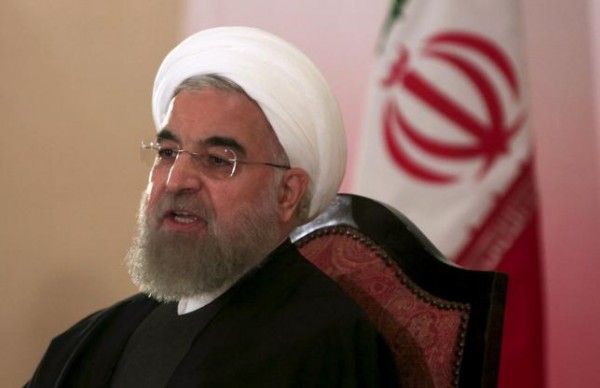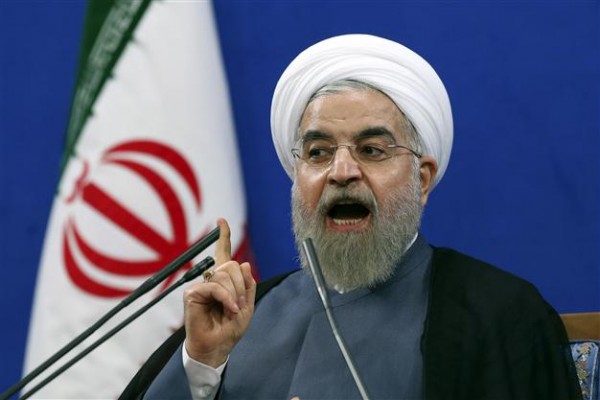
IRANIAN lawmakers have demanded President Rouhani appears in parliament to answer their questions on the current state of the country’s economy, according to state media this week.
Iran has faced harsh economic sanctions from the United States, following Donald Trump’s withdrawal from the Iran nuclear deal.
This is the first time Iranian parliamentarians have summoned Mr Rouhani to answer questions.
He has been facing increasing pressure in recent months to reshuffle his Cabinet and top team amid the diplomatic crisis.
The US sanctions threaten to cripple Iran’s economy, particularly targeting its crucial oil market.
Lawmakers also want the president to explain why Iranian banks still only have limited access to global financial services.
Increased access was a key negotiating point when the deal was struck in 2016.
Mr Rouhani cancelled an interview on state television last week – encouraging parliamentarians to hold the leader accountable for his actions.
Parliamentary speaker Ali Larijani was quoted by state television as saying Mr Rouhani will have one month to attend a parliamentary session and address the issues.
So far, 80 lawmakers have submitted questions for the President, however, the leader’s top team aren’t happy.
Vice president for parliamentary affairs Hosseinali Amiri, a Rouhani ally called the process “unconstitutional”.
Mr Amiri said: “Some lawmakers, who were convinced to take back their questions, were encouraged by other members of parliament to submit the questions again.”
Public discontent is currently high in Iran.
Since the start of the year, there have been protests over high prices, water shortages, power cuts, and alleged corruption.
On Tuesday, hundreds of people rallied in cities across the country, including Isfahan, Karaj, Shiraz and Ahvaz, in protest against high inflation caused in part by the weak rial.
Trump has offered to meet Mr Rouhani for more talks.
Israeli Regional Cooperation Minister Tzachi Hanegbi, a member of Israel’s security cabinet, said on Wednesday Trump’s offer of talks was a “ladder” to safety for a ruling system he said was on the point of collapse, but he was not surprised that Tehran rejected it.
“It is hard to see the Iranians… being agreeable to such a meeting with someone who only a few weeks ago basically sank an agreement with which they were so pleased. But this is the right kind of process with the Iranians,” Mr Hanegbi told Israel Radio.


Leave a Reply
You must be logged in to post a comment.